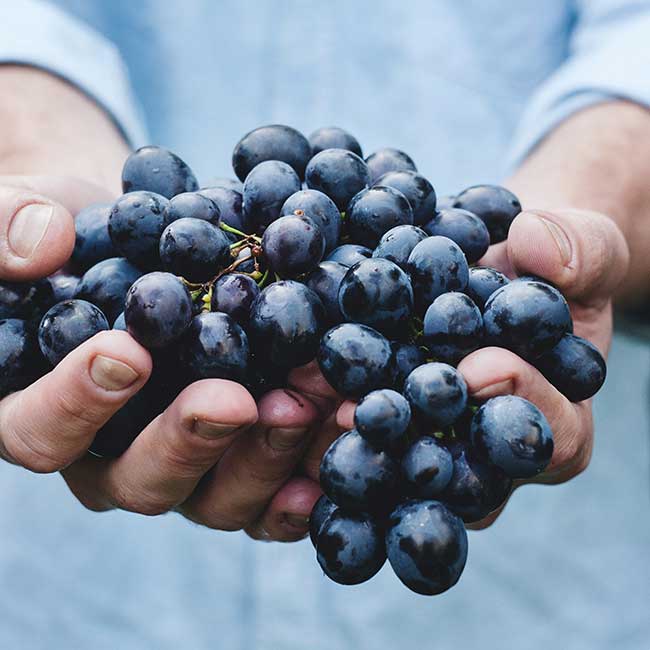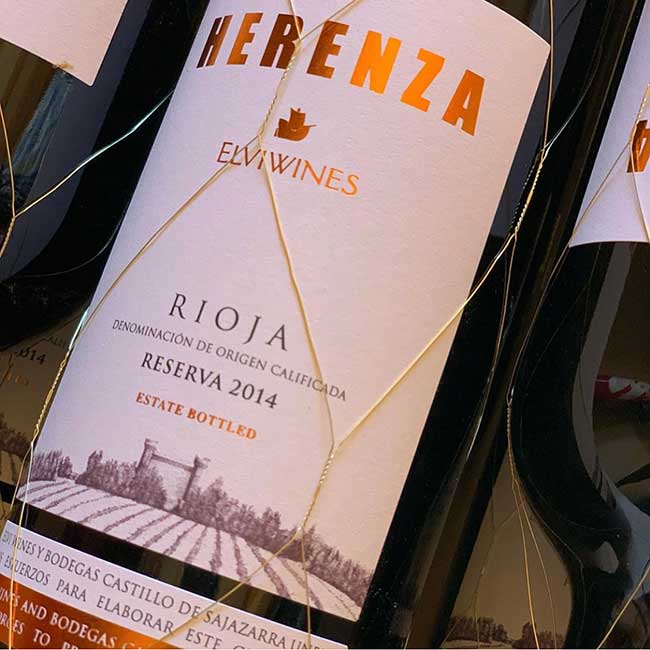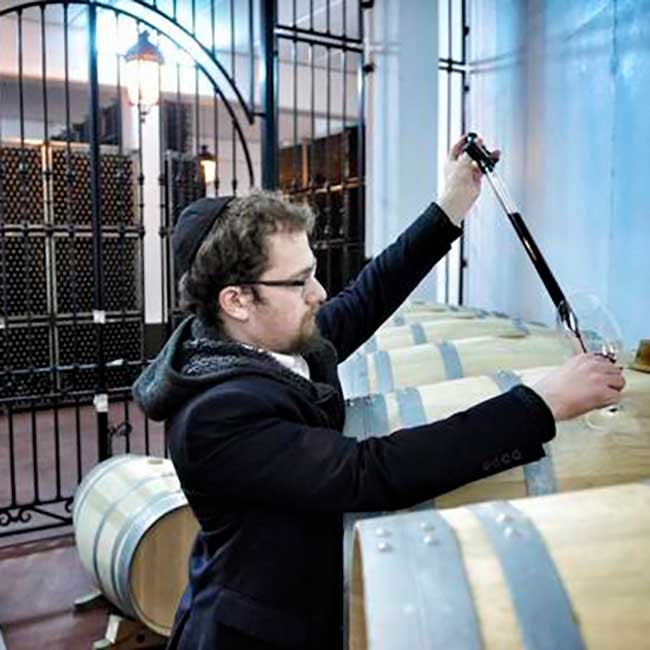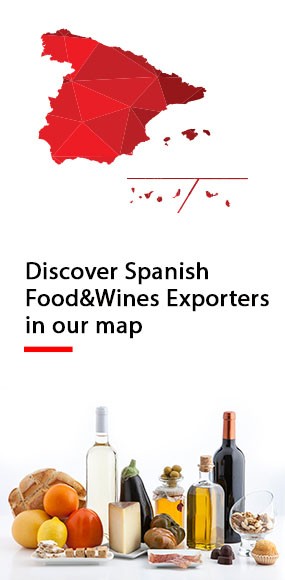.png.transform/rendition-xs/image_image%20(1).png)
Kosher Food And Wine from Spain
The number of foods and wines produced in Spain with kosher certification has grown in recent years, and they are exported to countries all over the world, with the USA representing the largest market, where people of all faiths value the kosher symbol as a sign of quality.

What does kosher mean?
Moises Cohen, the owner of Spain’s only fully kosher winery and export company, Elvi Wines explains, “Kosher literally means “suitable for consumption” and it is the world’s oldest certification system for traceability, a 3,000 year-old ISO system if you will.”
Kosher certification is an assurance that the food or drink product complies with the laws set out in Jewish sacred texts, which not only mandate the foods that may be consumed but also how they should be prepared and eaten.
Kosher wine, heritage and spirituality
The fact that the prayer for Passover is directed to the “Creator of the fruit of the vine” gives an idea of the importance of wine in Jewish culture.
“Wine is the pillar of Judaism,” states Jesús Bermejo, winemaker at Bodegas Señorío de Líbano in Rioja, which makes a kosher wine named Herenza in Sazajarra, which had a Jewish quarter until the 16th Century. “Even younger family members drink wine on Sabbath and wine takes a leading role in festivals such as Purim or Yom Kippur.”
Medieval archives reveal the historic involvement of the Jewish community in the purchase of vineyards in Los Arcos, Navarra, where Miguel Fernández de Arcaya makes a kosher wine called Alate. Made following the particularly strict ordinances of the Sephardic Haggadah, it is also kosher for Passover: “the wine we make is completely pure - no added yeast, 100% Tempranillo grapes rather than a blend - red wine is considered superior to white - and un-oaked as we also consider oak barrels to be an additive. Traceability is ensured as we only use grapes from our own vines and Alate is solely made in excellent vintages. If we aren’t happy with the quality, we don’t make kosher wine that year.”
Although, “grapes are the children of God” in the words of Jesús Bermejo, and are therefore seen as pure, once they enter the winery they should not be handled or even seen by gentiles. Only rabbis may open the trailers for the grapes to fall into the presses. The tanks where the wine is stored must be washed three times before use. All materials – from the yeast to the corks and barrels – must be certified kosher.

Here, and in other wineries such as Celler de Capçanes in DO Montsant, which has been making kosher wine since the 1990s, kosher wine is made and stored in a completely separate area of the winery, locked and sealed with tape, to ensure it is not touched by anyone by the rabbi and his assistants, who are young Torah students. “I give the instructions, but they carry out the work,” underlines Jesús Bermejo.
For Orthodox Jews, there is another level of kosher wine, mevushal, which is heat-treated to avoid contamination, meaning that it can be served by non-Jews in restaurants while retaining its special status.
Moisés Cohen, who also makes the Viña Encina range of mevushal wines from DO La Mancha, explained that he was only happy to make mevushal wine when he found a technique that maintained the flavor of the wine. The wine is flash-pasteurized through rapid heating and cooling prior to bottling – a technique that is also used for non-kosher wines in many regions, including Bordeaux, to create more stable, fruit-forward wines.
Quality assurance related to kosher food and wine
Clos Mesorah, Moises’s flagship wine, often comes top in rankings of kosher wine, but also competes on an international scale with non-kosher wines, winning gold medals and 90+ point scores. It is even listed in Michelin-starred restaurants. This was always Moises’s intention: “ We want our wines to compete with all wines in the world, and many of the importers we work with are not kosher importers.”
Chocolates Lacasa, the company behind Lacasitos, also believes that kosher certification is relevant to both Jews and non-Jews – particularly in the USA where consumers see the kosher stamp as representing “quality, health and safety”. To gain the certification, ingredients such as the red coloring obtained from the cochineal insect were replaced with plant-based alternatives.

Anna Casabona said that gaining kosher certification in the 1990s drove forward Celler de Capçanes in terms of quality, “We invested 500 million pesetas in modernizing the winery, replacing old tanks with stainless steel vats that the certification body deemed necessary for cleanliness.”
Jesús Bermejo echoes this, saying that “The criteria used to make kosher wines are so strict that they are a plus point for our winery. It is expensive and complicated to make this wine.” Beyond winemaking, the criteria that Bodegas Señorio de Libano follows require the vines to be at least four years old, untreated with manure or chemical fertilizers, and 1% of profits to be given to charity.
Famous brands from Spain
Some of Spain’s most iconic products, including Ybarra olive oils and Inés Rosales tortas, which have been made from wheat flour, extra virgin olive oil, sugar and aromatic spices in Seville since 1910, now have kosher certification.
Tio Pepe’s International Brand Manager Simon Leth-Nisson comments, “Tio Pepe is probably the most well-known and recognized sherry brand in the world. For this reason - and as we respect our consumers’ diverse beliefs - we wanted to offer this product to as many different consumers as possible by making a kosher version.”
In terms of markets, the USA and Canada represent the largest market for kosher goods, but European countries such as Germany, France and the United Kingdom are major importers, as well as Israel.
Text: Anna Harris-Noble

